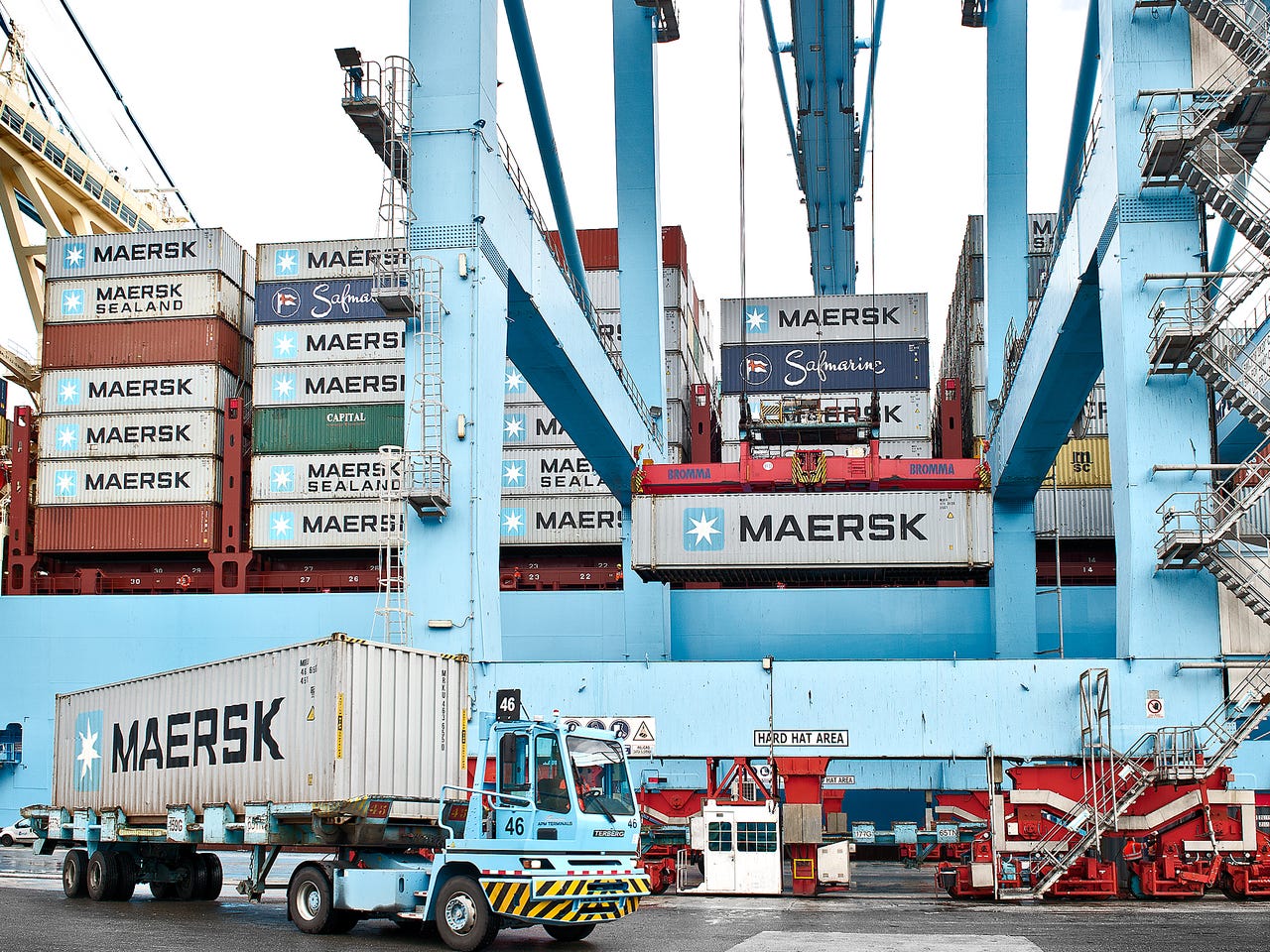Petya ransomware: Cyberattack costs could hit $300m for shipping giant Maersk


Maersk shut down a number of its operations due to the Petya cyberattack.
Falling victim to the global Petya cyberattack is set to cost Maersk, the world's largest container ship and supply vessel operator, up to $300m in lost revenues.
Security
The Danish transport and logistics conglomerate -- which has offices in 130 countries and almost 90,000 employees -- revealed predicted losses due to the ransomware infection in its second quarter financial report.
"In the last week of the quarter we were hit by a cyber attack, which mainly impacted Maersk Line, APM Terminals and Damco. Business volumes were negatively affected for a couple of weeks in July and as a consequence, our Q3 results will be impacted. We expect that the cyber-attack will impact results negatively by USD 200-300m," said AP Moller-Maersk Group CEO Søren Skou.
Maersk was one of the first high-profile victims of the Petya malware epidemic, which originated in Ukraine but spread to bring down IT systems around the world.
The company's interim report details how it reacted to the attack by immediately shutting down infected networks to contain the malware and prevent its spread. While Maersk's three container-related businesses were taken offline, its energy and other businesses were able to continue operating as normal.
Nonetheless, this precautionary measure resulted in what the firm describes as "significant business interruption during the shutdown period". The bulk of the financial impact of this disruption will be felt during the third quarter, according to Maersk, due to the temporary loss of revenue in July.
See also: Ransomware: An executive guide to one of the biggest menaces on the web
Total lost revenue as a result of the cyberattack is estimated to be between $200m and $300m. However, the firm's overall profit expectations for the year remain unchanged, despite the negative impacts of the Petya attack.
In response to the attack by the previously unseen variant of Petya malware, Maersk said it has "put in place different and further protective measures and is continuing to review its systems to defend against attacks".
Maersk isn't the only company to have reported losses as a result of the attack. Reckitt Benckiser -- the company behind Dettol cleaning products, the Nurofen painkiller, Durex condoms and more -- has predicted £100m in lost revenue and still hasn't restored all of its IT systems.
FedEx has also said it may not be able to recover all the systems at its TNT Express delivery unit infected during the outbreak. The company said the financial cost of the attack is likely to be significant.
While Maersk has taken a financial hit as a result of the cyberattack, the financial report said that "no data breach or data loss to third-parties has occurred".
The cyberattack spread a version of the Petya ransomware modified with a leaked NSA exploit -- the same EternalBlue Windows flaw which spread WannaCry. But unlike WannaCry, researchers have suggested that those behind Petya weren't interested in charging ransoms, but rather in irrecoverably wiping data.
Ukrainian police have arrested a 51-year-old man in connection with the ransomware attack.
Previous coverage
Ukraine calls out Russian involvement in Petya
Ukraine says the cyber attack designed to shut down its data and spread panic on Tuesday involved Russian security services.
Petya ransomware: Free decryption tool released for the original versions of this nasty malware
Red Petya, Green Petya, and GoldenEye can all be decrypted with this free tool -- unfortunately, it can't do anything about NotPetya or PetrWrap, though.
Petya ransomware: Companies are still dealing with aftermath of global cyberattack
Weeks after the ransomware attack that rippled across the globe, businesses are still trying to deal with the damage.
READ MORE ON CYBERCRIME
- WannaCry researcher denies creating banking malware at court hearing
- Ransomware turns even nastier: Destruction, not profit, becomes the real aim
- Cadbury chocolate factory shut down by Petya cyberattack [CNET]
- Hackers are making their malware more powerful by copying WannaCry and Petya ransomware tricks
- Ransomware attacks: Here's what we need to learn from WannaCry and Petya [TechRepublic]